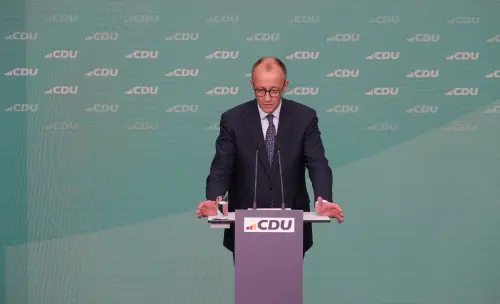On February 25, Germany may approve a fund to increase defense spending before the current parliament dissolves in March, said an ally of Friedrich Merz, the election winner. Merz faces challenges in forming a coalition given the rise of far-right and far-left parties.
In response to tensions with the Trump administration and Russia, Germany contemplates a significant military spending boost through a special fund, potentially totaling hundreds of billions of euros, according to a source in Merz's conservative party.
The country is also expected to debate relaxing borrowing limits to finance the defense increase and stimulate economic growth. Both actions mandate two-thirds parliamentary support, hinging on the new lawmakers coming into office by March 25.
The far-left Linke backs relaxing borrowing rules but opposes more military expenditure, while the FDP supports defense spending but not borrowing rule flexibility.
Lawmaker Thorsten Frei suggested the outgoing parliament could establish the defense fund swiftly but advised against rushing the borrowing limit discussion.
Merz’s party colleague Jens Spahn emphasized the need for increased defense spending by the upcoming NATO summit in June, warning Europe that the time for building up defense reserves is running out.
Following Olaf Scholz’s administration, a 100 billion euro fund aimed at modernizing the military post-Russia’s invasion of Ukraine in 2022 will soon expire. Both Merz and Scholz advocate for additional funding.
German defense firms experienced stock rises on Tuesday in anticipation of enhanced military investment.
Concerns have been raised by military officials and lawmakers over the German army's preparedness since the Russia invasion.
Merz has not fully supported changing the debt brake yet, despite calls from outgoing Defense Minister Boris Pistorius to ease borrowing limits for military enhancements. Pistorius pressed for a substantial budget increase, estimating over 100 billion euros and exceeding 3% of GDP as necessary.
